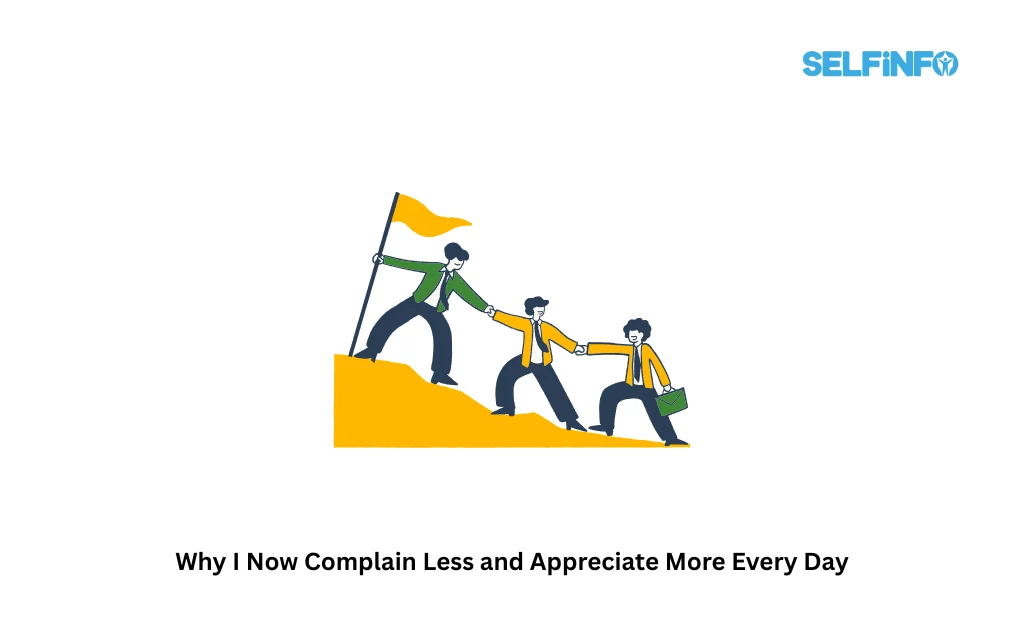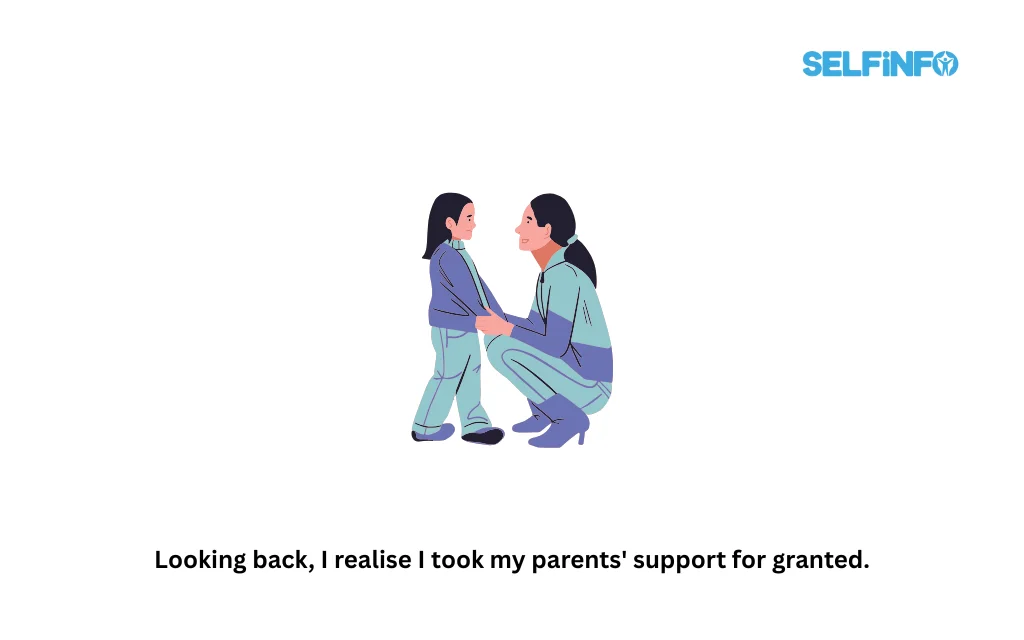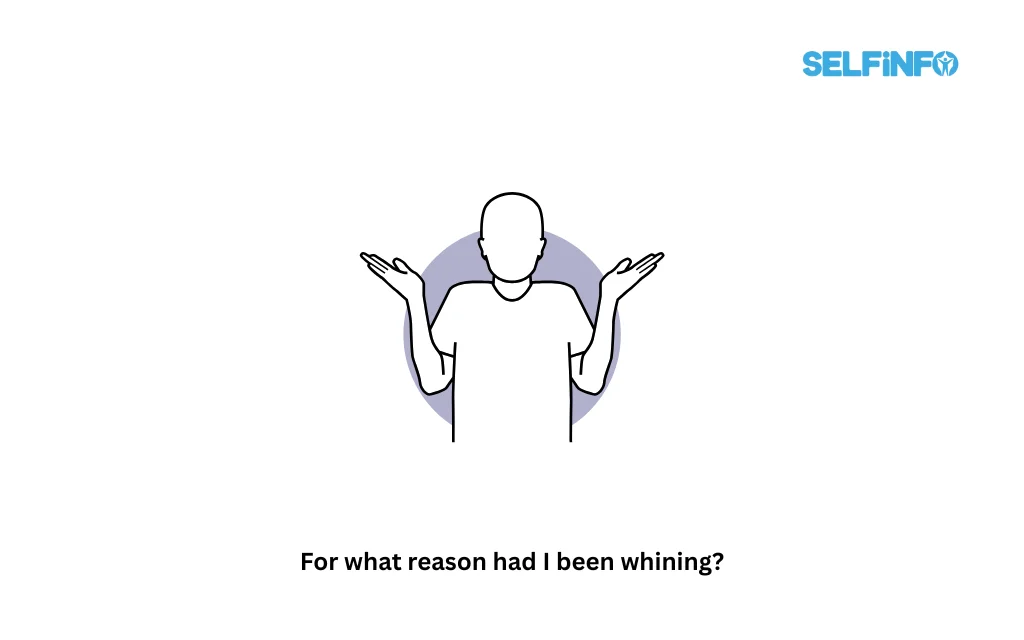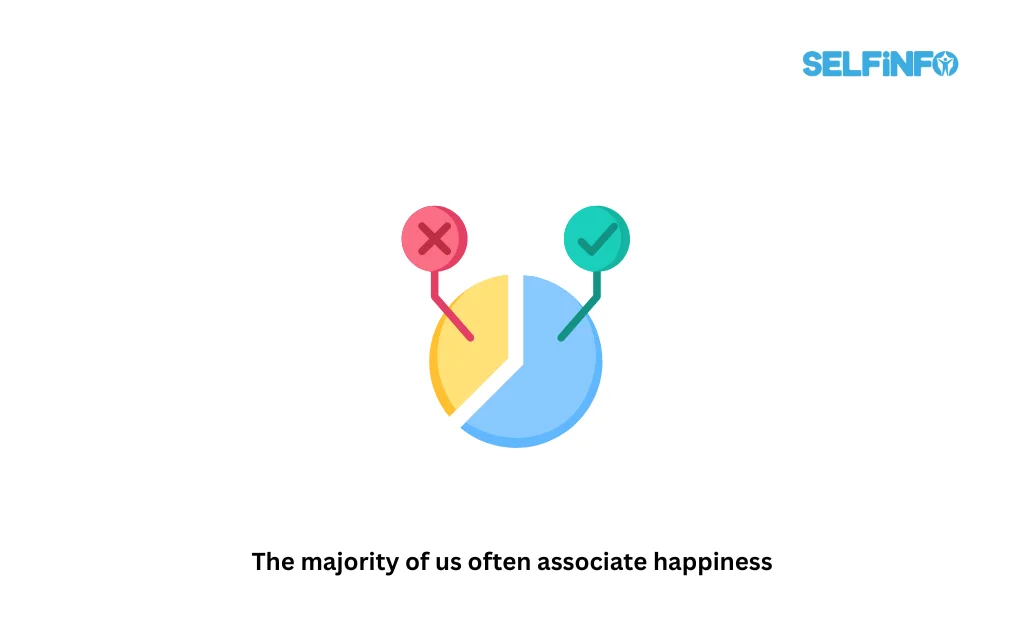Complain—that used to be my default mode. Whether it was my husband, the traffic, or the weather, I constantly found something to gripe about. The same frustrations, the same stories, repeated again and again.
When my spouse helped me around the house, I grumbled, and when he didn’t, I moaned. It took me a while to realize that I was not unhappy with him or his poor housekeeping abilities. I was becoming an ungrateful person, which made me unhappy.
I remember both good and bad things about my early years. My parents restricted my playtime and television watching while I was a child and forced me to eat green veggies. They forced me to go to bed at 8:30 PM every night and urged me to study and complete my homework. All I wanted, though, was freedom—freedom from homework and the ability to do as I pleased.
When I first complained to my parents about my lack of thankfulness, I was nine years old. One day after school, I chose to take the bus to my friend’s house rather than the one that would have taken me home. I had assumed that the tedious homework and awful vegetables would cease with this. However, things did not work out as expected.

My dad called my friend’s father and came to pick me up and drive me home. I saw anxiety written all over my dad’s face as I anxiously watched him get out of the car. “Come, let us go home,” he whispered, softly placing his protective hands around my shoulders. Guilt slowly crept into my heart as we drove home in quiet.
As we got closer to home, I looked out the car’s windows and saw my mother, a slender, exhausted figure, standing by the house’s gate. I stepped out of the car and hesitantly approached her. With caution, I yelled, “Mummy,” as I looked into her teary eyes.
She sobbed onto my school shirt as she embraced me and held me close. As my small hands grasped her, I became aware of my error.
Looking back on that situation now, I see how I took my parents’ support of me for granted as a child.

My parents provided for all of my requirements and helped me get ready for the future in a society where girls are forbidden an education, are occasionally buried alive, and have orphanages full of parents who have abandoned their children. I was fortunate to have parents who gave me a fair chance at life, allowing me to develop and thrive in this harsh world.
In fact, when I was still a child, my parents sowed the first seeds of thankfulness. However, it was not until I became a mother that I realized how important it is to express gratitude.
I experienced nervous times while caring for and raising my child, just like any other new mother. With crayon-painted walls, carrot juice stains on the carpet, moisturizers and lipsticks tested on every piece of furniture, and toys strewn everywhere, life with my energetic daughter seemed to be an endless battle.
I yearned for rest, for tranquility, and for a tidy home. I whimpered and moaned about how the hardest job in the world was being a mother.
However, one day I went to see a friend whose six-month-old kid was hospitalized after being diagnosed with Muscle Dystrophy, a genetic condition that affects all of the muscles, including the heart muscles.
That little baby was strapped to a cardiac monitor and laid on a bed, without moving. Watching the distraught mother plead with her weak infant to wake up, cry, whine, or do anything at all while he did nothing was awful. He simply laid there, not moving.
An picture of my daughter, my little devil, scrawling on the walls sprang to mind as I stood there, helpless, staring.
For what reason had I been whining? A healthy child, an active child? I hoped for this when I was expecting her, did not I? There are undoubtedly many ladies in the world who would be willing to do everything to help me with my restless nights and disorganized home.

I did not grumble after that day if my daughter could not fall asleep, even at two in the morning. In reality, I was grateful for my amazing gift as I held her and kissed her forehead.
It is human nature to focus on our problems and forget about our benefits, yet when we moan, our minds become negative and affect everyone around us like a domino effect.
Konosuke Matsushita, the creator of Panasonic, frequently used his well-known closing question to decide which candidates to choose. “Have you been fortunate in your life?”
According to him, the goal of this question was to determine whether the applicant felt grateful for those who had supported him throughout his life. He thought that when workers have this thankful attitude, the workplace becomes happier, which increases business production.
The majority of us often associate happiness with significant life events, such as getting a promotion or winning the lottery. However, these occurrences are rare. As we learn to appreciate the small things in life, gratitude is what makes our lives richer, more beautiful, and much happier.

We frequently take the people in our lives for granted or become mired in whining and moaning. It is true that my teenage girls never listen to me, my parents are constantly bugging me, my spouse can be lethargic at times, and I have some weird friends, but guess what? Without them, my life would not be complete.
Life is a festivity. We have everything we need when we love what we have. Therefore, let us make this life journey meaningful and make the big change from complaining to being thankful.
